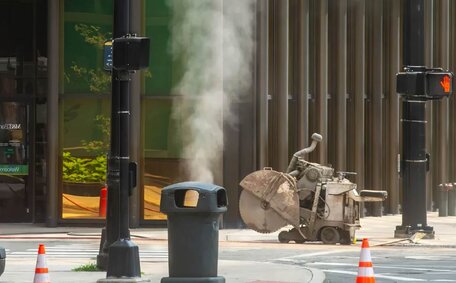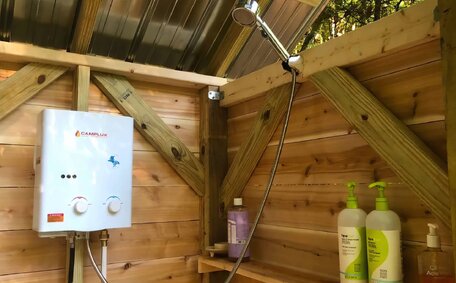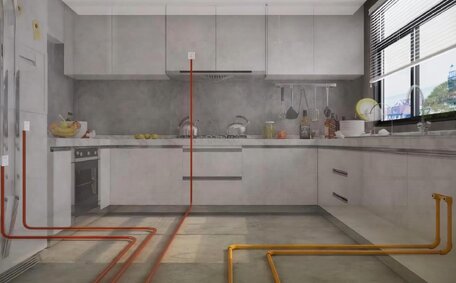
How To Move A Gas Meter
Need your gas meter relocated? You can’t move it yourself - contact your supplier to arrange for a gas engineer to reposition it safely. Charges may apply depending on circumstances.
Read MoreEfficiency ratings are crucial when assessing your hot water system’s performance. These ratings indicate how well the system converts energy into hot water, offering opportunities to save by reducing energy waste.
Efficiency ratings, represented by stars or a numerical scale, enable the comparison of water heaters for optimal energy utilisation. Typically, with higher efficiency ratings, hot water systems use less energy, leading to lower running cost and substantial savings in heating water.
Blending electric gas systems like heat pumps with solar technology can enhance hot water heating efficiency, slash energy bills and cut your carbon emissions.
There are several main water heating systems used in homes:
The particular water system can offer suitability depending on hot water demand, installation constraints, operating costs, and whether you prioritise energy efficiency. Understanding each system’s function assists in selecting the most suitable hot water solution for your home.
In choosing a hot water system, several crucial factors influence efficiency and performance:
Understanding the interplay of these factors helps make informed decisions on water systems, leading to lower running costs and financial benefits. Regularly reviewing your usage habits reveals possibilities to refine behaviour and maximise your current system’s efficiency.
The Uniform Energy Factor or UEF is one of the most important ratings used to compare and determine the efficiency of various hot water systems. Rated from 1.0 to 5.0+, a higher UEF shows more efficient energy use.
A 5-star water heater, with a UEF rating above 2.0, is markedly more efficient than a 2-star electric tank. This indicates that systems using the heat pump technology would consume less energy for equivalent hot water needs.
Higher UEF ratings translate into lower running costs and fewer greenhouse gas emissions than electric counterparts over the system’s lifetime. Properly installed high-efficiency systems such as heat pumps and solar hot water can lead to annual energy bill savings exceeding $300.
Before purchase, verify the star rating with the UEF, and aim to install or upgrade to a system rated 4-star or higher. This will minimise your water heating expenses and environmental impact over the longer-term.
Higher efficiency ratings on hot water systems mean lower energy bills, demonstrating how intelligent system choices can slash ongoing costs considerably.
A 5-star hot water system boasting a UEF of 3.5 uses less energy than a 2-star electric cylinder for the same hot water volume, saving 60% on power. Over a year, This could save a family substantial amounts through more efficient water heating, wondering how much energy you might save? Well over $300 on your electricity bill, especially with the adoption of a hot water heat pump.
Upgrading from a 3-star to a best hot 5-star system can also provide $100+ in annual savings. And opting for hot water systems that use gas or solar over conventional electric tanks cuts bills even further through free renewable energy or the elimination of standby losses.
Factoring in total cost over a decade demonstrates that the higher initial costs of efficient units are offset by long-term energy savings. If your water heater is older or inefficient, a new water heating system with a high-rating unit supports budgets.
To boost the efficiency of your current or new electric water heaters, try these effective tips:
Small, low-cost changes add up to big savings on your energy and water bills over time. Reach out to Menai Plumbing for advice on efficiency upgrades that suit your home.
Investing in upgrading your hot water system can yield significant rewards in terms of efficiency and reduced energy bills. There are a few key signs indicating it’s time to replace your existing water heater in Menai:
Our experts are on hand to evaluate if you could benefit from upgrading to a more efficient hot water system with government rebates. New systems must meet MEPS requirements for energy performance. Contact us to explore your replacement options.
Australia’s government offers rebates for high-efficiency and renewable hot water systems installation, under initiatives like the Renewable Energy Target.
Key rebates and eligibility criteria in Menai include:
Further rebates exist for households qualifying under certain income thresholds. To determine your eligibility for generous government rebates when upgrading to an efficient electric heat pump or gas instantaneous unit, get in touch with our Menai Plumbing team or Smart Energy Certifiers.
Adhere to these maintenance strategies to ensure your hot water system’s efficiency for the long term:
Following a proactive maintenance schedule ensures your system runs efficiently for optimal savings on water heating. Contact our Menai Plumbing team on 1300 349 338 for all your hot water servicing and repair needs in the Menai region.
Need your gas meter relocated? You can’t move it yourself - contact your supplier to arrange for a gas engineer to reposition it safely. Charges may apply depending on circumstances.
Read MoreInvesting in a solar hot water system can save up to 75% on water heating costs. With great returns and added home value, solar hot water can be a smart choice over electric or gas heaters. Contact us to see if it’s the right investment for your home.
Read MoreWhile natural gas and propane can both power appliances in your home, they have notable differences when it comes to BTU output, infrastructure, safety, cost and more. Understanding these key contrasts will help you determine which is better for your specific needs.
Read MoreMenai, 2234 NSW
We will call back as soon as possible.




